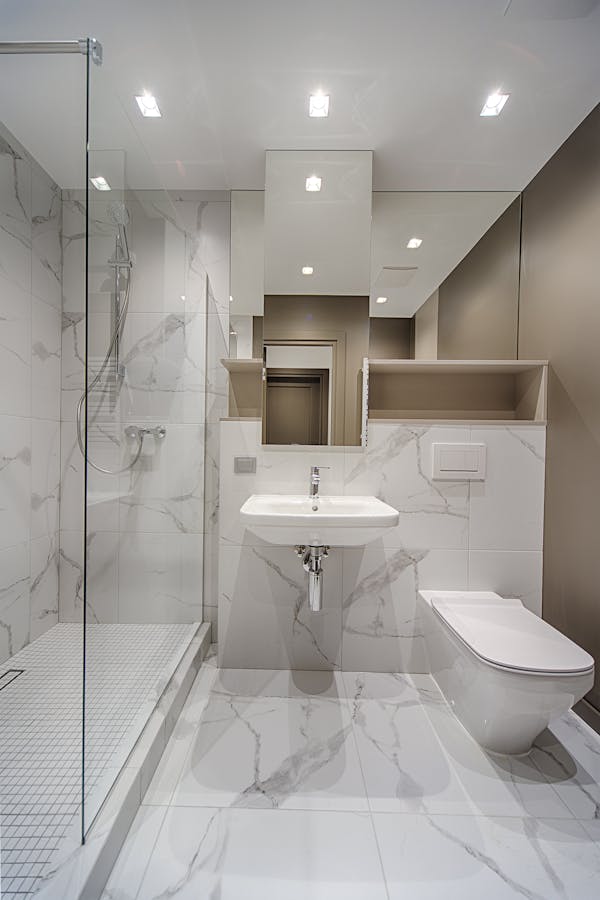Searching for apartments for rent can be both an exciting and daunting process. A good apartment can be your haven, while a bad one can become a never-ending headache.
To help you navigate through this journey, here are some common pitfalls to avoid.
Ignoring Budget Constraints
While searching for apartments for rent, maintaining economic balance is key. Rentals come with a range of offerings, each tied to a specific financial implication. Luxurious amenities might seem enticing, yet if their costs exceed the limits of your established budget, they could pose a potential problem.
The appeal of upscale features could be strong, but aligning them with your financial reality requires thoughtful reflection. Budget constraints should be seen as guidelines, steering tenants toward a harmonious blend of their financial goals and housing preferences.
To safeguard your financial interests, carefully consider factors like monthly rent, utilities, and upkeep against the backdrop of your resources. Long-term financial stability relies on making judicious choices. So, avoid the illusion of living beyond your means amid the array of apartments for rent, and instead, opt for a dwelling that aligns both aesthetically and financially. Your home ought to be a haven, not a financial burden, a realization achieved by embracing budgetary limits with intelligent discretion.
Neglecting Neighborhood Safety
Always check the safety of the neighborhood, especially if you’re unfamiliar with the area. Websites and apps can give you crime statistics, but nothing beats visiting the area yourself at different times of the day and talking to local residents.
Apartments, which are often located in diverse neighborhoods, significant disparities in security measures can exist. While certain areas may boast robust surveillance systems, vigilant patrols, and stringent access controls, others may lag far behind in terms of safety standards. Disregarding these disparities may lead to decisions fraught with potential risks.
Moreover, the safety of the neighborhood plays a pivotal role in shaping the overall quality of life. A secure environment fosters a sense of peace and tranquility, enabling residents to lead more relaxed and fulfilling lives. Conversely, neglecting neighborhood safety can result in persistent anxiety, negatively impacting one’s mental and emotional well-being.
Ignoring Reviews and Recommendations
The contemporary pursuit of suitable apartments for rent necessitates a methodical approach, where one does well to recognize the pivotal role that reviews and recommendations play. In the endeavor to secure a comfortable abode, the dismissive stance towards these informative resources would be an injudicious oversight.
Disregarding the value that reviews and recommendations bring to the fore is to ignore a rich reservoir of insights. These narratives, often succinct yet revealing, unveil a comprehensive view of a property’s attributes and drawbacks. Beneath the surface, lies a tapestry of experiences that illuminate dimensions hidden from casual scrutiny.
The implications of neglecting these insights are manifold and enduring. Apartments for rent, which initially appear promising, might harbor unforeseen deficiencies in facilities and management. The savvy tenant recognizes the potential of such information to serve as a compass, deftly guiding through the intricate terrain of rentals.
Skipping the In-Person Visit
The act of visiting extends beyond mere observation, it represents a prudent stride towards selecting a future dwelling that harmonizes with individual aspirations and lifestyle preferences.
The ease of online exploration might incline prospective tenants towards relying solely on virtual tours and imagery. Yet, the inherent limitations of these mediums become apparent when one fails to experience the subtleties that only a personal visit can reveal. Making decisions about prospective apartments without a firsthand encounter risks neglecting crucial nuances that significantly impact the overall living experience. Even the most vivid online descriptions cannot capture the authentic feel of the location, with its dynamic surroundings and immediate environment.
An in-person visit offers the unique opportunity to meticulously assess the apartment’s layout and spatial configuration. Elements such as natural light, room dimensions, and the interplay of spaces are best understood when physically present. Engaging with the surroundings, appraising the functionality of appliances, and gauging the responsiveness of on-site management all contribute to a well-rounded evaluation.
Failing to Discuss Rules and Regulations
When seeking an appropriate apartment, prospective tenants should take heed and initiate open conversations with property proprietors or managers concerning the conditions that dictate the utilization, upkeep, and decorum of the designated premises. Aspects like pet provisions, designated quiet hours, procedures for waste disposal, and guidelines for parking, although seemingly minor, possess the potential to impede the freedom of inhabitants if neglected.
An amicable understanding of these stipulations can enhance the rapport between tenant and landlord, proactively averting potential conflicts that might arise from misunderstandings or inadvertent omissions. Consequently, the discourse revolving around the spectrum of rules and regulations should be approached with meticulousness, as it molds the environment within which occupants will establish their daily routines.
Not Factoring in the Security Deposit
It is imperative to avoid the common oversight of neglecting the significance of the security deposit. This oversight can lead to unforeseen financial strain and disputes that could easily be averted.
One fundamental rationale for giving due consideration to the security deposit lies in its primary role as a protective measure for landlords against potential damage or unpaid rent. Typically required upfront by property owners, this deposit serves as a protective buffer, providing landlords with resources to cover any expenses incurred for repairs or outstanding rent.
Furthermore, the failure to account for the security deposit may disrupt your budgetary planning. Prospective tenants might discover themselves financially stretched as they endeavor to cover the initial costs associated with moving into their chosen apartment. Neglecting to factor in the security deposit can leave them with insufficient funds for other essential expenditures.
Equally important, the oversight of the security deposit can result in disillusionment. When tenants fall short of their financial commitments, disputes invariably arise, potentially endangering the sanctity of the lease agreement. Acknowledging the pivotal role of the security deposit empowers renters to engage in prudent financial planning, ultimately fostering a more seamless and harmonious rental experience.
